To listen to RTÉ.ie's radio and podcast services, you will need to disable any ad blocking extensions or whitelist this site.

0
00:00
00:00
Episode Notes
Panel: Éanna Ní Lamhna, Richard Collins & Niall Hatch
Don't forget that for the summer months Mooney Goes Wild will be coming to you live at 19:00 each Sunday evening on RTÉ Radio One. Be sure to tune in each week as Derek Mooney and his team of expert panellists bring you the latest nature-themed news and wildlife discoveries in their weekly celebration of all things wild.
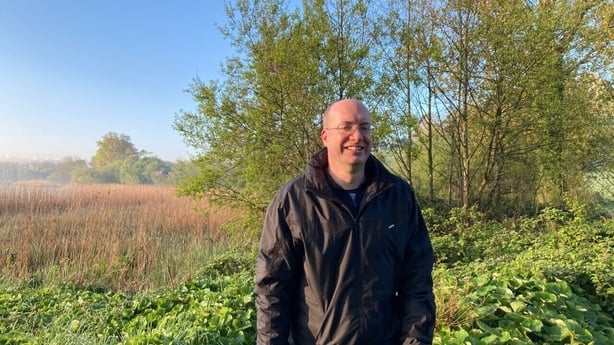
You will also have a chance to listen to another helping of Mooney Goes Wild in our usual slot of 22:00 on Monday nights, as well as any time you like at rte.ie/mooney
Celebrating National Heritage Week in Graignamanagh
For this week’s programme, Éanna is broadcasting from the village of Graignamanagh, meaning 'Hamlet of the Monks’, along the River Barrow, on the Co. Kilkenny-Co. Carlow border. As she tells us, she is there to celebrate National Heritage Week, an annual initiative by the Heritage Council which celebrates all things connected to the heritage of Ireland. It brings together communities, families, organisations, cultural institutions, academics and enthusiasts to build awareness about the value of heritage and support its conservation.
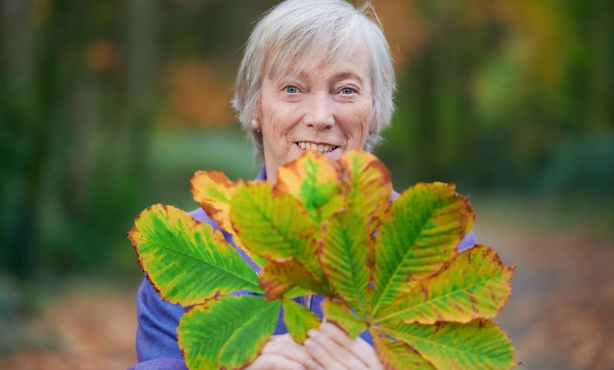
For more information about National Heritage Week, visit https://www.heritageweek.ie/
Horsing about
Another of our panellists has gone walkabout for tonight’s programme. Niall Hatch comes to us from the Dublin Horse Show in the RDS, where last Friday Ireland scored a magnificent victory in the Longines FEI Jumping Nations Cup to raise the coveted Aga Khan Trophy. Congratulations to Team Ireland from all of us at Mooney Goes Wild.
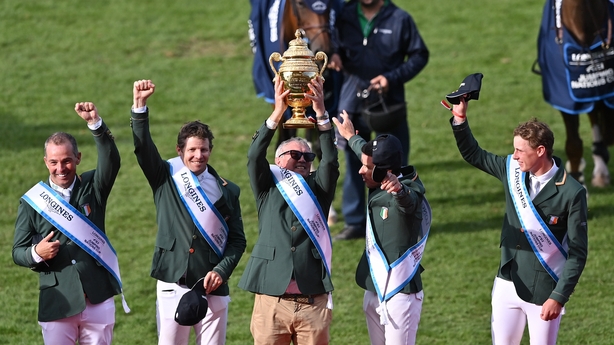
Fun though that was, that’s not why Niall was at the show. He was there instead to run the BirdWatch Ireland information stand, which is always a popular draw with the nature-lovers who attend the event. As he tells us, over the course of the five-day festival, Ireland’s largest conservation charity recruited plenty of new members, many of whom reported that they had developed a new affection for birds during the Covid lockdowns.
The organisation also raised funds through the sale of its popular nature-themed pin badges. At most public shows, BirdWatch Ireland finds that the badges depicting Robins, Blue Tits, Blackbirds, Puffins and Kingfishers are the most popular, but at the Dublin Horse Show these were beaten by foxes, pheasants and partridges . . . we wonder why!
For more information about the Dublin Horse Show, visit https://www.dublinhorseshow.com/
For more information about BirdWatch Ireland and to become a member to support its work, visit https://birdwatchireland.ie/get-involved/join-us-become-a-member/
Don’t feed the deer
One of the most famous and popular features in Dublin's Phoenix Park is its herd of Fallow Deer, which has been resident in this urban oasis for centuries. There appears to be a growing problem with people feeding the deer in the park, and the steady diet of 'junk food' they receive has been taking its toll on some of these majestic creatures, posing a serious risk to the well-being both of humans and of wildlife.
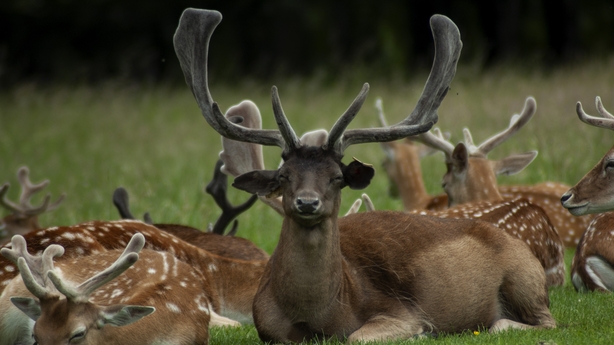
This is the conclusion of a new study by University College Dublin, which found that fawns from mothers who begged for food were significantly heavier than those whose mothers rarely approached visitors, giving the former a greater chance of survival. It also found that such begging traits are associated with bolder personality types, which could cause more animals to harass park visitors in order to get food. This, in turn, could lead to more injuries both to deer and to humans.
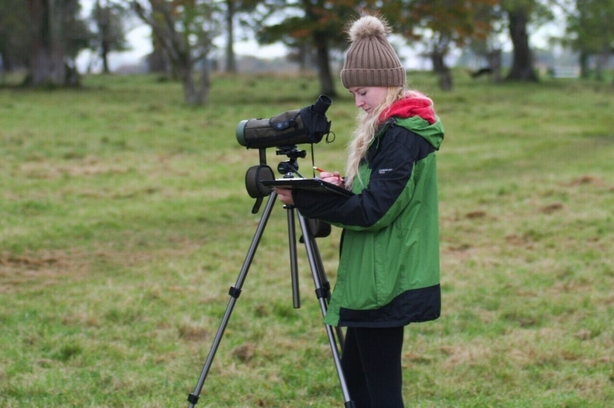
On tonight's programme, we speak to Laura Griffin, the main author of the study, who has noted all sorts of inappropriate foodstuffs, including chocolate, ham sandwiches and even energy drinks, being given to the deer by members of the public. Laura tells us why this is such bad news for these wild creatures and why it is vitally important that park visitors do not attempt to give any food whatsoever to them.
For more information about the Fallow Deer herd in the Phoenix Park, visit https://phoenixpark.ie/nature-and-biodiversity/
Should you feed birds during the summer or not?
Speaking of feeding wild animals, we know that a great many Mooney Goes Wild listeners love to put out food for the birds that visit their gardens. If this is done correctly and appropriate foods are used, this is not a problem: it gives the birds a welcome boost, especially during lean times of the year, and affords us humans a better opportunity to observe them and to get to know them. Unlike the Phoenix Park deer, garden birds don’t generally learn to associate humans with food, so their natural behaviours are unaffected.
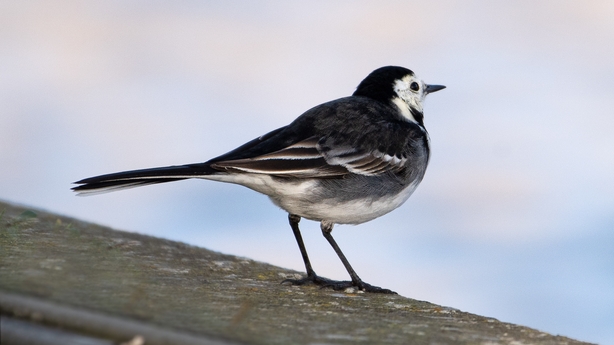
Most experts agree that feeding our garden birds during the cold months of autumn and winter is a good idea. What about the summer, however, when natural food is more readily available and birds are nesting? Derek has long been a proponent of winter-only feeding, while BirdWatch Ireland says year-round feeding is not a problem, provided that only suitable foods are given and that feeders are placed well away from locations where birds are actually nesting, so as not to cause them disturbance and stress. Whichever option you go with, winter is undoubtedly the time of year when our garden birds need our help the most.
For more information from BirdWatch Ireland about feeding birds in your garden, visit https://birdwatchireland.ie/irelands-birds-birdwatch-ireland/garden-birds/feeding-your-garden-birds/
The eyes have it . . . at least, some of them do
As he tells us on tonight’s programme, Derek was recently awoken in the early hours by a strange yelping/barking sound coming from outside the front of his house. Sticking his phone out of his bedroom window, he was able to make a recording of it. He suspected that he knew its origin, so to confirm it he checked the footage from his security camera. He was right: the sound came from a foraging Red Fox.
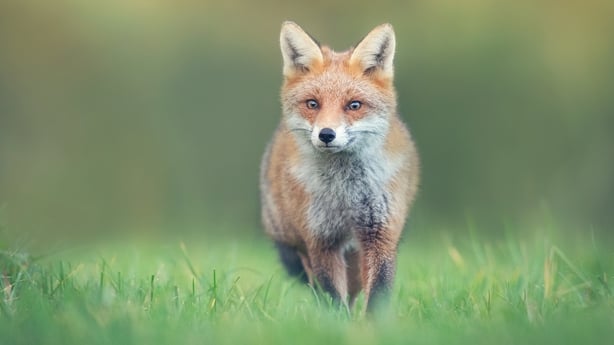
Aside from its call, Derek noticed another striking thing about the fox. In the footage from the camera, the animal’s eyes appeared to be glowing intensely. This eyeshine is a feature that is frequently seen in animals that are largely nocturnal, including foxes, cats, badgers and even alligators. Humans and most of our fellow primates lack this trait, however, as do other diurnal mammals, such as squirrels.
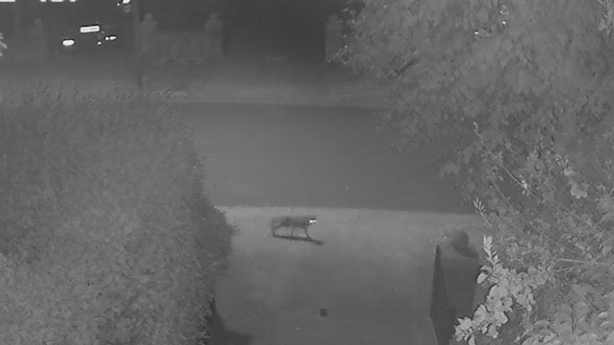
The colour of the reflected eyeshine varies from species to species, but in almost all it is the result of a special layer of tissue in the eye, lying directly behind the retina, called the tapetum lucidum. This reflects light back through the retina, allowing the animals to see in dimmer light that would otherwise be possible. However, there is a trade-off, in that this means that the eyesight of the animal in question is not as sharp as it would otherwise be.
For more information about the tapetum lucidum and its role in enhancing night-vision in animals, visit https://en.wikipedia.org/wiki/Tapetum_lucidum
Leave No Visible Trace
Nuala Mahon is a fine art photographer who lives on picturesque Sherkin Island off the coast of West Cork. During her daily walks along the island’s beaches during Covid lockdown, she became increasingly aware and concerned about the amount of plastic debris being washed up along the shore.
As Nuala tells us on tonight’s programme, she soon realised that the vast majority of the plastic debris she was finding consisted of discarded marine items, ranging from fishing nets and lobster pots to ropes and footwear. Her non-scientific estimate would be that 60% to 70% of all plastic material that washes up on our beaches comes from the marine industry. Children’s plastic toys also made up a significant proportion of the pollution.
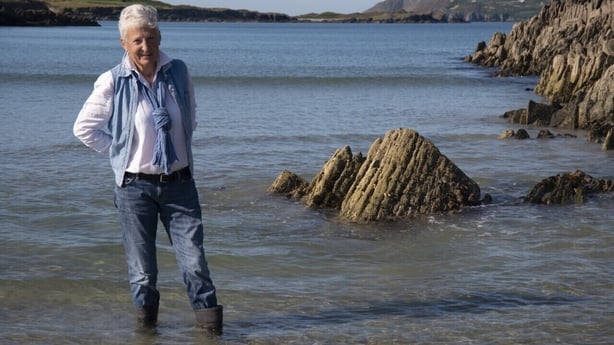
Nuala decided to use her photographic skills to document the extent of the problem and to highlight the environmental issues that the plastic pollution causes. The result is her upcoming exhibition, called Leave No Visible Trace, which will be on display in the Community Hall on Sherkin Island from 3rd to 8th September 2022 between 11:00 and 17:00 daily.
For more information about Nuala’s Leave No Visible Trace exhibition, visit https://www.echolive.ie/corknews/arid-40934096.html
For more information about the problems that plastic pollution can cause for marine creatures, listen to our special Mooney Goes Wild documentary on the issue, entitled The Bergen Whale, first broadcast in September 2018: https://www.rte.ie/radio/radio1/clips/21433840/
